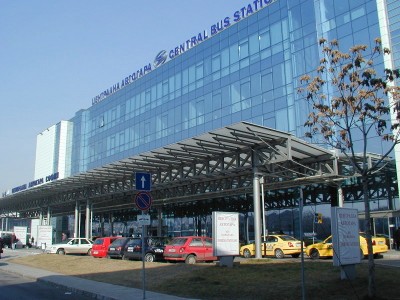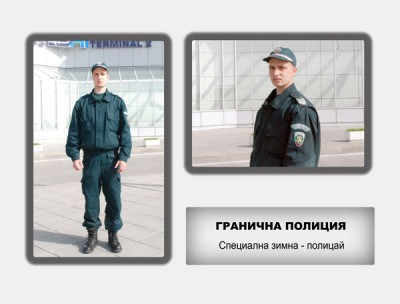Political scientist and blogger
Anastas Vangeli described his experience of extortion by Bulgarian policemen on his way from Macedonia to Poland. On February 9, 2014, two armed officers "detained" him at a secluded area the main bus station in Sofia, until he gave them some money. In conclusion, he wrote:
This was probably one of the most disappointing experiences in my lifetime. What added to the disappointment, however, were the comments and the double victimization by people when I told them this happened:
- I was asking for it since I look “like a foreigner” and rich
- I was asking for it since I was bragging with my China books and looked rich
- I was supposed to know and expect this kind of things
- I was supposed to hold my grounds better, e.g. not let them take me to a room, not let them get my money
- I am supposed not to complain, as this stuff happens every day and I am not special
These are all statements that not speak only of the reality of omnipresent corruption and abuse of office and power, but about the complete lack of empathy, or even consciousness that one day it might be you. Moreover, it is an indicator that people have given up the hope that things will change; but also the responsibility that they should contribute to such change. At the end of the day, the state holds the monopoly of the use of force; I was mugged by those who are supposed to protect me (even though I don’t have a Bulgarian passport – no pun intended). So all kinds of relativizing comments are completely out of place on this.
These reactions are consistent with one of the key characteristics of
"backsliding from democracy," exposed at the Seventh Assembly of the
World Movement for Democracy, held in Lima, in October 2012:
"...corruption becomes so widespread that citizens accept is as a norm."
People commenting (in various languages) on Vangeli's
Facebook post about the incident reminisced that such "toll for foreigners" was common Bulgarian police practice during the dismal 1990's - but did not expect its resurgence. Some of them related similar experiences from other countries, from Russia to Kenya. Activist Besim Nebiu wrote:
Notice how they immediately asked you if you have a flight to catch at the airport. That gave them the 'upper hand' in dealing with you. A friend of mine who lives in Kenya, once wrote a blog post, in which he describes how corrupt police have "opportunity cost" (8 hours shifts in which they try to maximize revenue). They usually avoid "difficult customers," so any strategy of acting dumb and not too upset should work, after 15 minutes, they give up on you, and move to someone easier to deal with.
|
|
| Special Winter uniform of Bulgarian Border Police presented
[bg] on the website of Ministry of Interior Affairs. According to the
victim, the officers in question wore green and carried badges of common
police (“Ohranitelna Politsiya”), which according to the Ministry wears
dark blue uniforms. |
Bulgarian blogger
Komitata translated Vangeli's post within
his post [bg] "They protect us and it's no theatre," which includes opinions about the local context of wasted state resources on police actions praised by the relevant minister:
The system of the Ministry of Internal Affairs is not reformed. Previous government invested great efforts, but due to lack of decisiveness and political will, the reforms remain modest and far from irreversible.
In his post, Komitata also referred to
Twitter discussion [bg] in which Bulgarians ask whether the police has the right to search them at the bus station, and pointed to a
info on citizen rights during police searches [bg].

